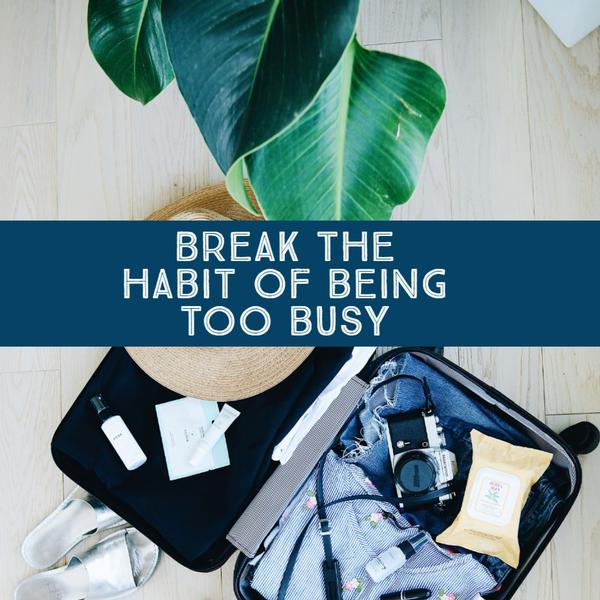The Benefits of Taking a Leadership Break
Breaking the habit of being too busy
By Audrey Epstein
My adult son came home from college for Spring Break last week. He did nothing. I mean nothing. He stayed out until 2am with his friends, slept until the middle of the afternoon, binge watched TV, and enjoyed letting us cook his meals and take him shopping and out for dinner. I must admit I was somewhat appalled by his laziness and lack of industriousness. How could he do nothing? By day four I could no longer hold my tongue. My “shouldn’t yous†and “why don’t yous†in that special mom tone definitely came out.
He was both surprised and indignant. “Mom, I just had 3 midterms, wrote 20 pages of research papers, all while holding down my 25-hour a week job. I want to do nothing. Why are you hassling me?†I felt taken aback, but I started to think….is there something wrong with doing nothing?
In my executive coaching work doing nothing is not a theme I have to tackle with the leaders I support. Instead, these leaders are often too intense, too aggressive, too impatient, and too type A. They don’t know how to turn it off or unwind. They are sending their teams emails at 6am on Sunday or 11pm on Thursday. And even though they report to me that they tell their teams, “I just like to work this way. I don’t expect you to respond to me outside of working hours,†their actions speak much louder than their words and the tone is set. Work is first. Work is everything. Work is 24/7.
Three things happen when leaders take a break:
-Â They gain perspective. Distance from a business challenge can often help us resize its impact or rethink its importance.
- They reset and recharge. Contrary to the beliefs of some executives I’ve met, everyone needs sleep. Everyone needs time to reconnect with friends and family. And a little coddling once in a while can be a really nice thing.
- They stop focusing for just a little while on achieving and instead can just be. Many leaders struggle with being present. They don’t stop to enjoy their success. They are always on to the next hurdle. When we are constantly focused on what’s next, we often forget to feel gratitude for what we have today. We feel like we are never quite good enough.
And, when leaders take a little time off to do nothing it is not only great for them, but for their teams as well. (And I don’t mean being “on vacation†while checking your email 20 times a day and calling in for meetings.):
-Â It forces delegation.
-Â It lets more junior team members step up and take on something for the first time.
-Â It demonstrates trust in the team.
-Â It allows team members to plan and achieve their work without guidance.
-Â It forces team members to work together collaboratively and hold each other accountable.
Leaders need to invest the time in breaking the habit of being too busy. Not only will they reap the benefits of taking a break, their team will as well.
